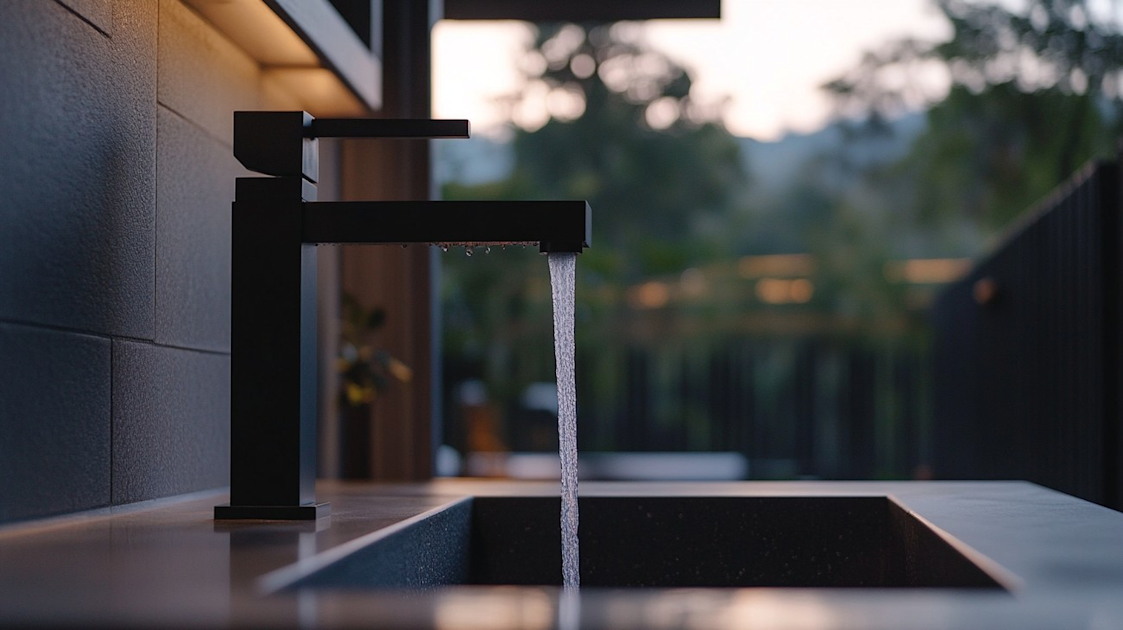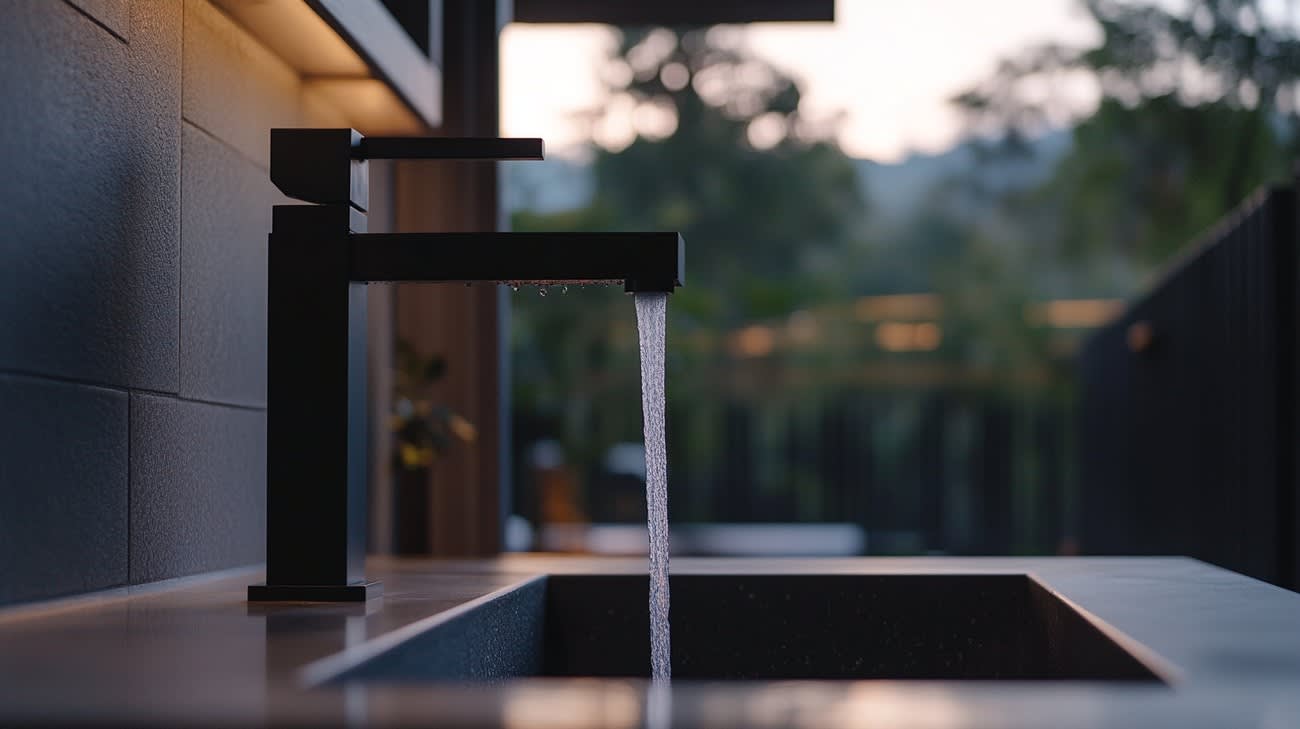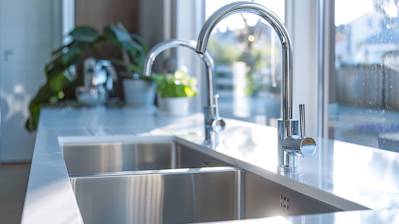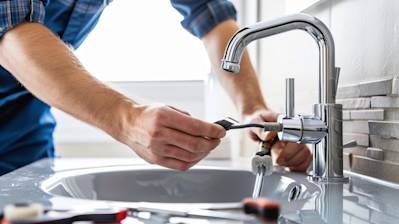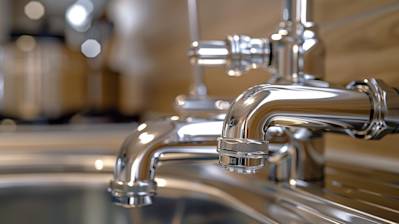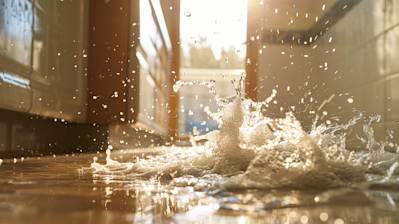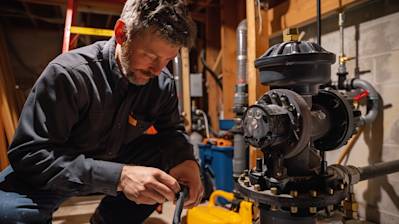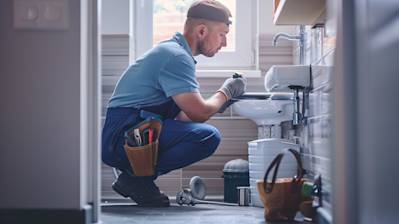Water hammer, also referred to as hydraulic shock, is a regular occurrence for many homeowners, particularly when they least anticipate it. This phenomenon might cause puzzlement or even alarm due to its loud, frightening noise. This comprehensive guide aims to help you understand what water hammer is, how it occurs, and how it can be resolved.
Understanding the Concept: What is Water Hammer?
Water hammer is a unique plumbing issue characterized by a loud hammering sound reverberating through your pipes. This largely underestimated problem is not just a noisy annoyance, but it can also lead to severe plumbing damage if not addressed promptly.
In the simplest terms, water hammer happens when water moving at high speed in the pipes stops or changes direction suddenly. This abrupt shift generates a pressure wave that leads to the water hammer effect.
The Science Behind Water Hammer
The Mechanics of Water Hammer
The mechanics of water hammer involves physics principles such as momentum and pressure. As water flows rapidly through a pipe, it carries a considerable amount of momentum. When a valve is suddenly closed, the water tries to continue moving, thus causing a buildup of pressure.
The Role of Water Velocity
Water velocity plays a significant role in the severity of water hammer. Typically, the faster the water flows, the louder and more damaging the water hammer effect can be. As the speed of the water increases, the pressure exerted during a water hammer incident also rises.
The Effect of Terrain
In some cases, the layout and terrain of the plumbing system can also contribute to the intensity of water hammer. The force of gravity can exacerbate the pressure surge, particularly in vertical pipes where water has a natural downward flow.
Signs Indicating The Presence of Water Hammer
Water hammer is generally characterized by a loud banging noise, but several other signs can indicate its presence in your plumbing system. These include:
- Bursts of noises occurring when water outlets are shut off
- Unusual vibrations in the walls or under the floor
- Occasional instances of unusually high water pressure
- Leaky pipes, particularly shortly after you've closed a faucet
How to Fix Water Hammer Issues
The first step in resolving water hammer problems is understanding its mechanics. Thereafter, several preventative and repair measures can be introduced:
- Pressure Reducing Valves: Installing a pressure reducing valve can help manage high water pressure that leads to water hammer.
- Air Chambers or Water Hammer Arrestors: Installing an air chamber or water hammer arrestor in your plumbing system can reduce the abrupt momentum change of water, thus mitigating water hammer.
- Draining Your Plumbing System: Occasionally draining your plumbing system can remove air and refill the air chambers, curbing potential water hammer incidents.
Professional Help for Water Hammer
Properly diagnosing and fixing a water hammer often requires professional expertise. If you're suffering from persistent water hammering, it's recommended that you call in a reliable plumbing specialist. The specialist will, in most cases, conduct a detailed inspection to accurately identify the cause of the problem and take measures to address it efficiently.
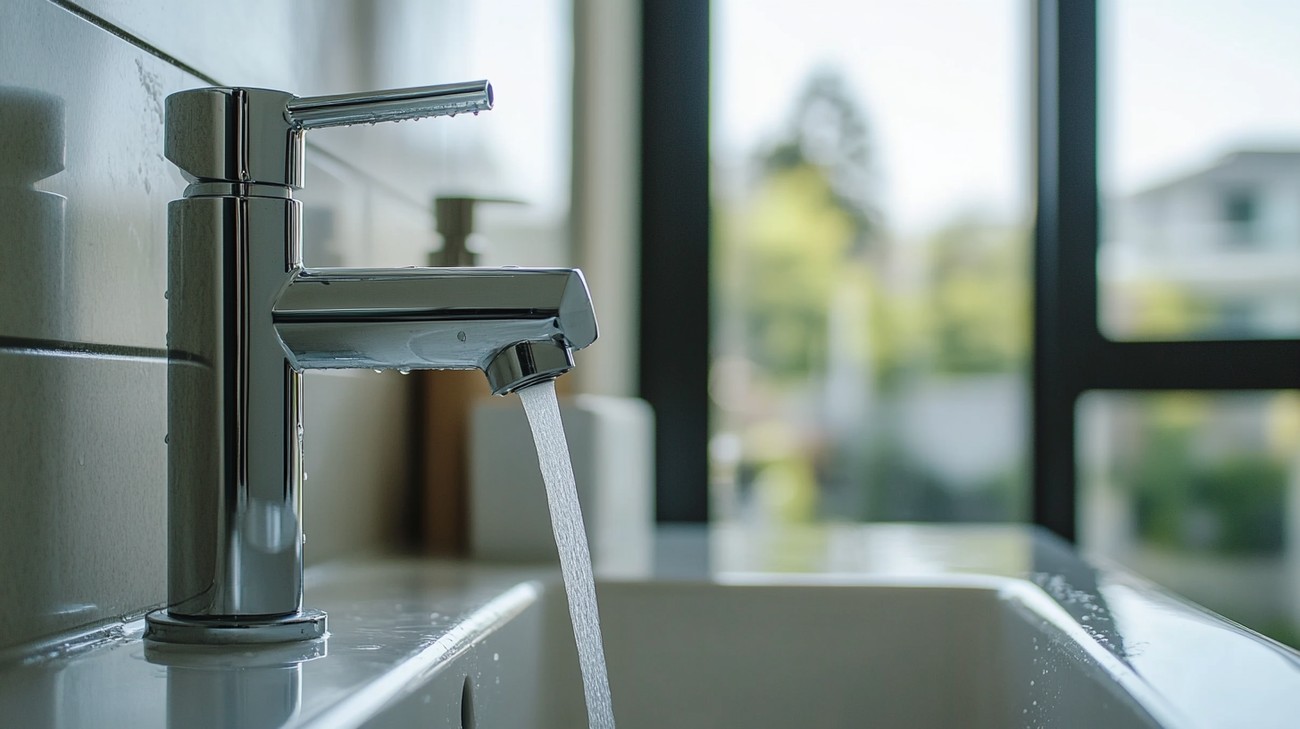
Frequently Asked Questions about Water Hammer
How is Water Hammer Detected?
Water hammer is usually detected by the noises it causes in the pipe system. The noise can range from a slight ticking or clicking noise to a loud hammering or banging noise, which gives the phenomenon its name. In some cases, water hammer can also be detected by the physical movement of pipes, fixtures, or equipment.
How Can I Prevent Water Hammer?
The most effective ways to prevent water hammer include proper pipe sizing, reducing water velocities, installing piping in ways that keep it from moving or vibrating, and installing water hammer arrestors or air chambers at critical points in the system. Shortening the length of the water run, ensuring smooth flow paths, and using slow-closing valves or soft-starting pumps can also help.
What Are Water Hammer Arrestors?
Water hammer arrestors are devices designed to absorb the shockwave produced by water hammer. These devices usually consist of a sealed, air-filled chamber. When a shockwave hits the arrestor, the water compresses the air in the chamber, which absorbs the shock and prevents it from propagating through the piping system.
Is Water Hammer Dangerous?
Water hammer can be very damaging to pipes, fixtures, and equipment in a plumbing system. The force of the water shock can cause pipes to burst or joints to leak. Water hammer can also cause vibration and movement of pipes, which can cause noise and potential structural damage. In severe cases, water hammer can even cause personal injury.
Can Water Hammer Affect My Water Pressure?
Yes, water hammer can affect your water pressure. The pressure shockwave caused by water hammer can result in momentary high-pressure spikes, which can damage fixtures and equipment. It can also cause low pressure at other points in the system. In the long term, damage caused by water hammer can lead to decreased pressure and flow.
How Often Should I Check for Water Hammer?
Checking for water hammer should be a regular part of your routine maintenance checks of your plumbing system. If you notice any unusual noises, movement, or changes in your plumbing system, you should check for water hammer.
Can Water Hammer Occur in Hot Water Systems?
Yes, water hammer can occur in hot water systems. The rapid changes in water temperature in hot water systems can cause rapid expansion and contraction of the pipes, which can in turn cause water hammer.
Does Water Hammer Occur in Industrial Settings?
Yes, water hammer does occur in industrial settings where large amounts of water are moved quickly through pipes, especially in steam and cooling systems. These systems often have high flow rates and pressure, and rapid changes in these conditions can cause water hammer.
Can You Fix Water Hammer on Your Own?
Yes, there are several do-it-yourself solutions for fixing water hammer if you're a handy homeowner. This can include installing water hammer arrestors, insulating the pipes, securing loose pipes, or adjusting the pressure-reducing valve. However, severe water hammer situations may require professional attention.
Can Appliances Cause Water Hammer?
Yes, appliances that use a large amount of water quickly, like dishwashers and washing machines, can often cause water hammer. This can especially be the case when these appliances rapidly shut off their water supply, creating a sudden change in water flow.
Is Water Hammer Different in Older Houses?
Water hammer can occur in both old and new houses but is often more noticeable in older houses. The pipework in older properties may not have been designed to handle the high pressures and flow rates common in modern plumbing, which can lead to water hammer.

Pros of Water Hammer
Identification of Pipe Issues
Water hammer can be a helpful indicator of other issues within plumbing systems. This phenomenon typically occurs due to sudden changes in the velocity of water flow, commonly experienced as sudden pipe closure or by rapid changes in water direction. Recognizing the presence of water hammer puts homeowners or facility managers on alert to inspect the plumbing system for possible irregularities, enabling them to address potential issues before they escalate.
Early Warning of Leaky Valves
Specifically, water hammer can act as an early warning for leaking check valves. The occurrence of water hammer in systems with these valves is an indication that the valves are not sealing properly causing the water to change velocity abruptly.
Power Generation
In hydropower engineering, the water hammer effect can be utilized to generate power. The process involves releasing stored water to produce a water hammer that then drives a turbine. While this application is limited, it does highlight a positive utilization of the water hammer effect.
Scientific and Engineering Study
The study of water hammer has had profound implications in the domain of fluid dynamics and mechanical engineering. Experts have been able to develop an understanding of pressure waves and non-steady flow dynamics due to studying water hammers. This understanding has been applied further in resolving many engineering applications and problems.
Cons of Water Hammer
Pipe Damage
One of the most significant drawbacks of water hammer is the potential for pipe damage. The pressure surge caused by a water hammer can cause serious damage to pipes, particularly if those pipes are older or already weakened for other reasons. These damages might take the form of dents, cracks, or even ruptures.
Leaks and Pipe Bursts
Water hammer can create excessive pressure within piping systems leading to leaks and potentially bursting. This isn’t just a problem for high-pressure industrial piping systems, it can also be an issue in residential plumbing where damage can spell costly repairs.
Component Damage
Aside from pipes, other components of a plumbing system can also be damaged by water hammer. Valves, pumps, gauges, and fittings are susceptible to the sudden pressure and velocity changes that cause water hammer. In turn, extensive damage to these components could lead to system failures, disrupting normal operations of the facility.
Noise Pollution
We cannot discuss the disadvantages of water hammer without mentioning the noisy disturbances it presents. The sound coming from water hammer can range from a simple thudding noise to an excessive banging or jackhammer type sound. These noises can be very disruptive, especially in residential applications where quiet is valued, or in facilities where noise could interfere with operational functions.
Increased Maintenance Costs
The frequent occurrence of water hammer in a plumbing system necessitates regular maintenance and inspections. With time, the costs to maintain the plumbing system might escalate due to persistent water hammer problems. Repairs and replacements of damaged parts might strain resources for homeowners and facility managers.
System Downtime for Repairs
In manufacturing or process industries, water hammer can lead to extended downtimes. If a water hammer causes a pipe to rupture, operations typically need to be paused until repairs have been made. This can have significant financial implications if it leads to a slowdown in manufacturing or productivity.
In sum, water hammer in a system has both significant disadvantages and a few benefits. Where the phenomenon can indicate system anomalies and provide a sense of the internal dynamics of fluid flow, its negative impacts such as pipe damage, leaks, and the subsequent maintenance and downtime costs cannot be ignored.

Myths and Misconceptions about Water Hammer
Water hammer, a phenomenon that occurs in plumbing systems, is often misunderstood. Whether it's confused with other plumbing issues or mistakenly believed to be harmless, it's crucial to dispel these myths and misconceptions, and understand the realities of water hammer to better deal with the issue.
Misconception 1: Water Hammer is just Noise
A common misconception is that water hammer is merely a loud noise that occurs in the pipes. While it's true that one of the symptoms of this phenomenon is a banging or knocking sound, water hammer is much more than just a noise.
Reality
Water hammer refers to a pressure shock wave that transmits through the fluid contained in a pipe system. This pressure surge is primarily caused when a valve is suddenly closed, halting the fluid's flow. Yes, it can produce noise, but it can also damage piping systems, joints, and attached equipment if not addressed promptly.
Misconception 2: All Noises in Pipes are a Result of Water Hammer
Given the noisy nature of water hammer, it's easy to assume that any noise from the plumbing system is a result of it. That's, however, not accurate.
Reality
There are many other common plumbing issues that can cause noises in pipes. For example, loose pipes can produce a rattling sound as water flows through them. Similarly, high water pressure can result in a whistling sound. Any unusual noise from the pipes should be checked out, but remember – not all plumbing noise means water hammer.
Misconception 3: Water Hammer Can't Cause much Damage
This is a harmful misconception. People sometimes regard water hammer as a minor, harmless annoyance, which isn't the case.
Reality
Water hammer can cause appreciable damage to the plumbing system and even to appliances connected to it. If left unchecked, the repeated pressure spikes can damage pipe joints, leading to leaks, or even rupture the pipes. It can also damage appliances such as washing machines or dishwashers that abruptly stop the water flow, leading to expensive repairs or replacements.
Misconception 4: Water Hammer Only Occurs in Old Plumbing Systems
Some believe that water hammer is primarily a problem in older plumbing systems. This is only partially true.
Reality
While water hammer is more common in older systems that lack modern pressure-balancing mechanisms, it can occur in new systems too. If a valve is suddenly closed, any system, irrespective of its age, can experience water hammer. Therefore, it's important to install water hammer arrestors or pressure relief valves in any system to mitigate this risk.
Misconception 5: It's Easy to Fix Water Hammer by Yourself
DIY culture has led many homeowners to believe that they can fix any issue, including water hammer, on their own. While certain minor fixes can be performed, it's not always the case with water hammer.
Reality
Identifying the exact location and cause of water hammer usually demands professional expertise. Also, installing a pressure-regulating valve or water hammer arrestor is generally a task best left to a qualified plumber. Engaging professionals reduces the risk of improper installation, which could fail to solve the problem, or worse, create new ones.
Misconception 6: Water Hammer Arrestors Never Require Replacement
Some homeowners, having installed water hammer arrestors, believe their water hammer woes are permanently resolved. While arrestors are indeed effective in counteracting effects of water hammer, they're not invincible.
Reality
Over time, water hammer arrestors can lose their air charge, impairing their ability to absorb pressure. If water hammer symptoms reappear, it may be time to replace the arrestor. Also, regular inspections of these devices help ensure they're functioning correctly and extend their lifespan.
In conclusion, by debunking these myths and misconceptions about water hammer, homeowners can approach this plumbing issue with better knowledge. Recognizing the potential damage caused by water hammer and understanding the need for professional assistance can lead to timely repairs, preventing costlier replacements and infrastructure damage.
Summary
So, what we've touched on is water hammer, a surprisingly frequent occurrence that, unbeknownst to us, can cause significant damage. It's that pesky loud bang in the pipes you sometimes hear when you abruptly turn off the tap. While it might be annoying, far more concerning is the extensive damage, it can inflict on your home’s plumbing system over time. Therefore, it's crucial to deal with a so-called water hammer if you notice it.
You might be wondering about the role of pressure in water hammer. Well, it's all down to an abrupt change in water pressure that unleashes a shockwave rushing through the pipes. The aftermath? If left unchecked, water hammer can lead to leaks, bursts, and even expensive water damage repair. It's not just an issue for homeowners, but for large, critical systems such as those in power plants, it's a matter of utmost importance.
But don't be too worried. With the advancement in technology, there are plenty of fixes that can help tame the water hammer. Pipes can be fitted with water hammer arrestors, air chambers, pressure reducing valves and more. Also, regular plumbing maintenance is key to keep it at bay. Always remember, a little awareness and attention to water hammer can make a big difference in the long run. Just because it simply sounds like a slight thump, it doesn't mean it should be taken lightly.
About KYPD Plumbing
KYPD Plumbing, based in beautiful Lexington, KY, is your go-to resource for both common and complex plumbing issues. We're not just any run-of-the-mill plumbing service; we're a dedicated team of professionals who enjoy turning problematic plumbing into the smooth running system you can rely on. From routine maintenance to emergency call outs, our crew brings passion, knowledge, and expertise to every job. We take pride in our work and love serving our Lexington community. Let's face it, we're plumbers, it's what we do and we absolutely love it! Stay local and choose KYPD Plumbing for all your plumbing needs.
Tags: plumbing, pipes, hydraulic shock,

